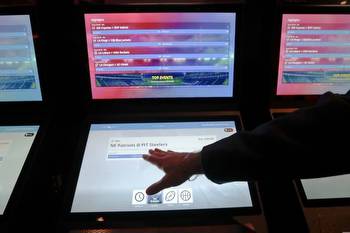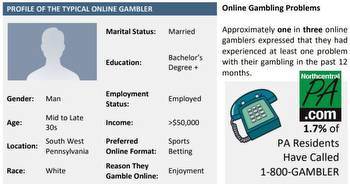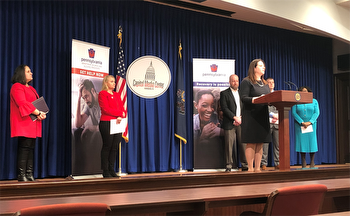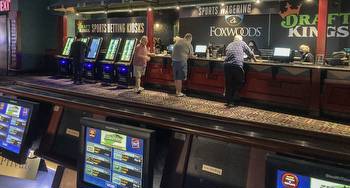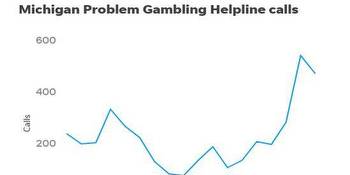Online Gaming Revenue Soars As “Problem Gambling Awareness Month” Begins
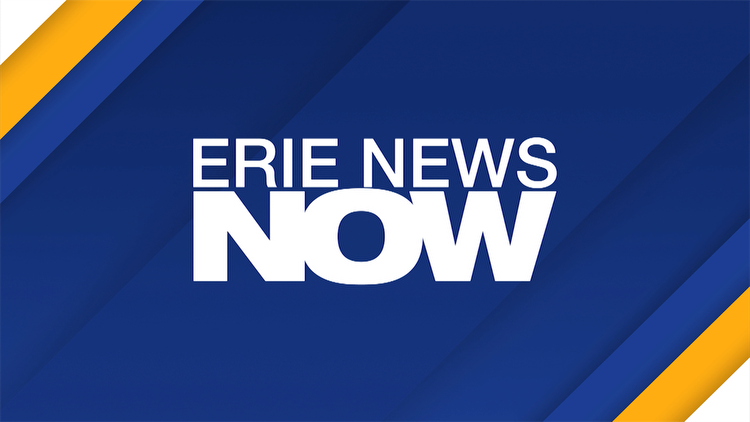
HARRISBURG, Pa. (Erie News Now) – March is the 18th annual National Problem Gambling Awareness Month.
According to the Pennsylvania Gaming Control Board (PGCB), total gaming revenue generated this January was over $390 million, a 26-percent increase from January of 2021. Roughly $108 million of that revenue is from interactive, or online gaming.
With Pennsylvanians gambling online more now than ever, officials are promoting treatment services, while some advocates share stories about their struggles with problem gambling.
“It was in 2014 when I first acknowledged that I had a problem,” said Robert Grove, a recovering problem gambler who is sharing his journey at a crucial time.
“Over the course of the past year, the total calls, chats and texts for help in 2021 nearly doubled when compared to those in 2020 and 2019,” said Josh Ercole, the Executive Director at the Council on Compulsive Gambling of PA.
Ercole says there’s been a rapid expansion with new gambling technology, especially over the past two years when many were unable to head to the casino.
“And it’s been pretty massive,” said Ercole.
According to the 2021 Interactive Gaming Report, one-in-ten or roughly 11-percent of Pennsylvanians surveyed, have participated in online gambling in the past year.
Of that 11-percent, nearly half answered “Yes” to at least one of these problem gambling assessment questions:
Preoccupied with gambling in the past 12 months?
Needed to gamble with larger amounts of money to get the same feeling of excitement in the past 12 months?
Gambled longer, with more money, or more frequently than intended in the past 12 months?
Attempted to cut down, control, or stop gambling in the past 12 months?
Borrowed money or sold anything to gamble in the past 12 months?
“It is estimated that two-to-four-percent of the population will develop a gambling disorder at some point in their lives,” said Claire Yantis with the PA Gaming Control Board (PGCB).
Pennsylvania online operators are required to offer responsible gambling tools like deposit limits, spend limits, wagering limits, time limits and more, all to help users monitor gambling activity.
“In January 2022 alone, over 80,000 iGaming accounts utilized at least one of these responsible gambling limit tools offered by the operators,” said Yantis.
The tools have helped thousands with their problem gambling like Grove, who has been in active recovery for over two years.
“I only achieved success when I found the right support,” said Grove.
Grove is living proof that finding support, and even sharing your story can turn your life around and maybe even someone else’s.
“Based on my experience, I can confidently report that these programs are effective and they do work,” said Grove. “Problem gamblers are not bad people trying to be good, they’re sick people trying to be well.”
Pennsylvania’s Self-Exclusion Program allows an individual to request to be excluded from legalized gaming activities and those within a casino and offsite venues. More information on the program and ways to identify problem gambling can be found through the PGCB’s website.
Individuals seeking compulsive or problem gambling treatment can call Pennsylvania’s helpline at 1-800-GAMBLER (1-800-426-2537). This helpline is available 24 hours a day, 365 days a year to connect callers with local resources in their community. A live chat option is also available online or via text message at 1-800-522-4700 for those seeking help who may not be comfortable speaking to a helpline operator.










